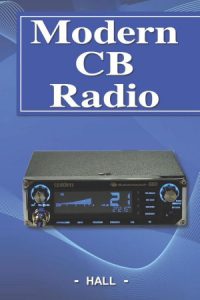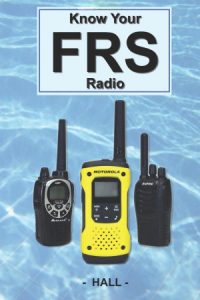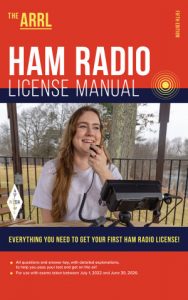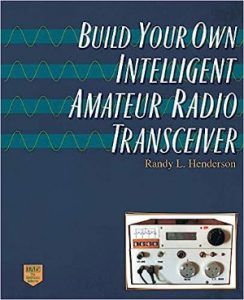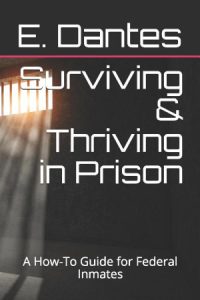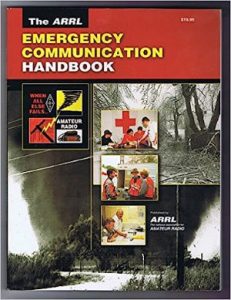This question may be more complex than you might imagine. Then again, since radio frequencies and their use is managed by the government, maybe not 😉
I should start with a few disclaimers, the information I provide here is correct to the best of my knowledge for people in the United States. I am not a lawyer, I am not an FCC employee or a paid radio professional. This is simply information that I have collected over the years from sources I think are reliable. Take everything I say with a grain of salt and do your own research.
Things you can not do on the radio, period
The obvious is you can not discuss illegal activities on any radio, ever. You also can not use what they call “obscene” language on any radio service. Even if the specific service you are using does not have a specific rule about it (I can not find one for LMR part 90), it is still most likely covered by local/state laws and ordinances. Threats, harassment, etc are also unlawful.
Another point of note is that you can not communicate using scrambled, coded, or otherwise obfuscated communication methods. To make this very clear, you can not communicate in such a way that it intentionally keeps other people from understanding your conversation.
Unless you have a broadcasting license, you can not play music, TV, or any other “broadcast” over the radio such as podcasts, etc. Music should not even be incidental (in the background) to your broadcasts.
Radios you do not need a license for
There are three basic services that you can use without a license; FRS (Family Radio Service), CB (Citizens Band), and MURS (Multi-Use Radio Service). These are licensed “by rule” which means you just have to use the right equipment and follow the rules for the service you are using. Simple.
Breaking this down in very simplistic terms means if you go buy a CB radio from a reputable company such as Uniden, Cobra, etc, attach nothing that did not come in the box, then you should be good.
Once you add a “linear” or amplifier, you would be breaking the law. You also can not use just any equipment. A great example is buying a Baofeng radio from China and programming it for FRS frequencies, which is illegal. It isn’t just about the frequencies, it is about the radio itself being certified by the FCC.
FRS is easy, just go grab a “bubble pack” off the shelf at your local hardware, sporting goods, or department store and start transmitting. Please note that some radios sold online such as Amazon and eBay may say FRS on them, but not actually be authorized by the FCC and so are illegal.
MURS is fairly simple although you need a specifically licensed radio such as RMM2050, DLR1020, DLR1060, DTR600, and DTR700.
Radios you do need a license for
Just about any two-way radio you buy off of Amazon or eBay that is not listed as FRS or CB, from a major manufacturer such as Motorola, Midland, Cobra, etc will require a license if it is legal to use at all (more on that later).
All amateur radios (HAM), GMRS, and business (Land Mobile Radio) radios will require a license.
You also need a license to broadcast music, talk shows, podcasts, speeches, etc.
Radios that are just plain illegal
Any radio that is not certified or authorized for use by the FCC is illegal, full stop. If you are a licensed amateur radio operator who is transmitting on a frequency assigned to your license level using less than the maximum power and in every other way obeying the rules, except the radio you are using is not authorized by the FCC, you are operating illegally.
If you are an amateur radio operator you may, however, build your own radio and accessories as long as you abide by the frequency and power restrictions of your license. This is specifically authorized in part 97.
I suppose that you could, in theory, design and build your own version of a Baofeng handheld and use it legally. Assuming of course you have a valid amateur radio license. You can not build them for sale without authorization from the FCC so if you were thinking of making a business out of it, nope.
What happens if I use it and don’t have a license?
On the legal side, honestly, probably nothing. But if you did get caught, and people absolutely do, it can be a real legal mess as you are dealing with Federal issues.
Aside from attorney’s fees, travel, accommodations, etc since you probably don’t live in a city with a Federal courthouse so you would have to defend yourself out of town, you could be subject to a $500 fine per incident, up to $10,000 for violating the Communications Act of 1934 (basically for not obeying the FCC), have your equipment confiscated (including any and all attached equipment and/or equipment used to facilitate your use of the equipment, think computers, etc), and face up to a year in jail.
Other than immediate legal concerns you have to understand why they license and restrict what frequencies you transmit on. What happens if you transmit over a frequency in use by ambulance, fire, or police? Even if you listen first, they might be using digital and you can’t hear them, but your transmission might interfere with their reception. Licensing is designed to avoid this by restricting who can transmit at what frequency and at what power.
Do you want to be responsible for one or more people dying because the emergency crews heard 19 Willow Lane instead of 3919 Willow Lane and being too late to save someone’s life? If that happens, and they catch you, they will tack on manslaughter and other charges.
The bottom line is it is just not worth it, and getting a license is just too cheap and easy. Besides, studying for your license will teach you a lot of things you never knew about operating a radio and make you much better at it. This is especially true if you are a prepper and want radio comms for your SHTF bag. Those who know how to make a dipole and when to use it will be able to communicate a LOT farther than some jarhead who just bought a Baofeng off eBay and never bothered to learn what he was doing.
I am amazed at how much time some of the preppers I meet spend at the firing range or outfitting their 4×4 to drive over/through anything and everything, yet the most they have ever done with the only way they have to communicate is figure out how to change the frequencies. Insane.
There is one big exception to this and that is in a real emergency when people’s lives are at stake, then you can transmit on any radio you can get your hands on. Keep in mind, this exception means that if you do not use the radio, any reasonable person would expect that someone will absolutely die. This is not an exception because you are lost, or you broke your arm, or you saw someone suspicious in your neighbor’s yard. Think plane crash, lost in the middle of a desert with no water or transportation, a boat capsized 50 miles from land, that kind of thing.
Then again, if you had your amateur radio license you would know how to maximize your chance of getting help instead of just screaming into a radio and hoping for the best. That is why after earthquakes, floods, and hurricanes, when cell towers and radio towers are down, it is the amateur radio operators who are still communicating and help with emergency communications.
Do your own research
I hope this article has helped you understand when and why you need a license, but as I mentioned in the beginning, to be sure, you should do your own research. Below are links to the regulations relevant to this article. You should read them yourself and make sure you know your rights and obligations under the law.
FCC regulations:
Part 90 regulates the Land Mobile Radio Service (business radios)
Part 95 regulates GMRS, FRS, CB, and MURS
Part 97 regulates Amateur Radio or HAM


